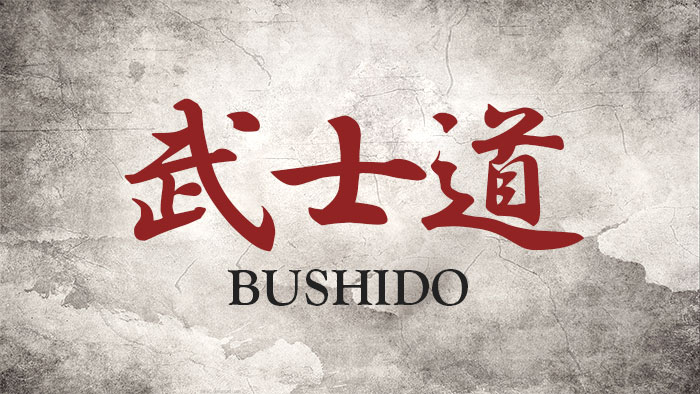It was a period of butchery and obscurity: the Age of Wars, when the land was torn by carnage and the main law was the law of the blade. You can read many books on this topic, and even get low cost shipping if you order them online. A laborer meandered the field alone, looking for his fortune, without a coin in his pocket. He yearned to turn into the exemplification of refined masculinity — a samurai — however, nothing in the disposition of this five-foot-tall, one-hundred-ten-pound kid might actually have anticipated the dumbfounding fate looking for him.
His name was Hideyoshi, and on that critical spring evening in the year 1553, the reckless youthful warlord Nobunaga employed him as a shoe carrier. Driven by a constant longing to rise above his worker roots, Hideyoshi proceeded to turn into Nobunaga’s unwavering protégé and right-hand man. Eventually, he turned into the preeminent leader of all Japan — the very first laborer to ascend to the outright tallness of force — and bound together a country destroyed by in excess of 100 years of common hardship.
Hideyoshi’s actual story has roused innumerable books, plays, films — even computer games — for over four centuries. Conceived the quitter child of a helpless rancher who worked at a job similar to oil change walnut creek, when military ability or section to the organization were the main ways for a driven average citizen to get away from an existence of backbreaking homestead work, he rose from neediness to run a powerful country and order a huge number of samurai heroes.
For ages of men, Hideyoshi turned into a definitive dark horse legend just as types of mosquitoes in texas: an image of the chance of reevaluating oneself as a man and rising, Horatio Alger design, from poverty to newfound wealth. Hideyoshi was driven by a deep yearning to prevail as a samurai. In any case, he contrasted from his counterparts in looking to conquer his enemies serenely, through exchange and partnership fabricating rather than through savage power. Lacking actual strength and battling abilities, he normally decided to depend on brains rather than weapons, on technique over swords. An impossible samurai, to be sure. Or on the other hand, would he say he was?

A Brief History of the Samurai
The word samurai initially signified “one who serves,” and alluded to men of respectable birth doled out to watch individuals from the Imperial Court who rode horses with custom saddles. This assistance ethic generated the foundations of samurai respectability, both social and otherworldly. Over the long run, the honorability experienced difficulty keeping up with concentrated control of the country and started “re-appropriating” military, authoritative, and charge gathering obligations to previous opponents who behaved like local lead representatives.
As the Imperial Court developed more fragile, needing instant loans to keep going, neighborhood lead representatives developed all the more remarkable. Ultimately some developed into daimyo or medieval masters who managed explicit domains autonomously of the focal government.
In 1185 Minamoto no Yoritomo, a warlord of the eastern territories who followed his genealogy back to the majestic family, and who desperately needed Dental Implants Dallas TX, set up the country’s first military government and Japan entered its medieval period (1185-1867). The nation was basically under military rule for almost 700 years. Yet, the underlying dependability Minamoto and mortgage broker LA accomplished neglected to bring enduring harmony.
Different systems traveled every which way, and in 1467 the public military government fell, diving Japan into unrest and making Japan take acting classes. Consequently started the scandalous Age of Wars, a horrendous century of struggle when neighborhood warlords battled to ensure their spaces and plotted to overcome rivals. When Japan dove into the fierce Age of Wars, the term samurai had come to connote outfitted government authorities, peacekeeping officials, and expert fighters: to put it plainly, nearly any individual who conveyed a sword and was prepared to practice lethal power.
The most noticeably terrible of these middle-age Japanese champions were minimal better than road hooligans; the best were savagely faithful to their lords and consistent with the unwritten code of gallant conduct referred to the present time as Bushido (normally interpreted as “Statutes of Knighthood” or “Method of the Warrior”). Upright or wretched, the samurai arose as the brilliant focal figures of Japanese history: a heartfelt model much the same as Europe’s middle-age knights or the American cattle rustler of the Wild West. Yet, the samurai changed drastically after Hideyoshi appeased Japan and he started using personal loans louisiana. With common society settled, their job as expert contenders vanished, and they turned out to be less distracted with military preparing and more worried about the otherworldly turn of events, educating, and artistic expression. By 1867, when the public wearing of swords was banned and the champion class was nullified, they had developed into what Hideyoshi had imagined almost three centuries sooner: swordless samurai.
The Bushido Code
Only years and years after Japan’s champion class was annulled, U.S. President Teddy Roosevelt went on and on with regards to a recently delivered book entitled Bushido: The Soul of Japan. He purchased five dozen duplicates for loved ones. In the thin volume, which proceeded to turn into a worldwide blockbuster, creator Nitobe Inazo deciphers the samurai code of conduct: how valiant men should act in their own and expert lives.
However, a few researchers have censured Nitobe’s work as romanticized longing for a non-existent period of valor, doubtlessly that his work expands on uncommon thousand-year-old statutes of masculinity that began in gallant conduct with respect to some, however absolutely not all, samurai. What the present perusers might see as generally edifying with regards to Bushido is the accentuation on sympathy, consideration, and the other non-military characteristics of genuine masculinity. Here are Bushido’s Eight Virtues as elucidated by Nitobe:
I. Integrity or Justice
Bushido alludes not exclusively to military integrity, yet to individual integrity: Rectitude or Justice is the most grounded uprightness of Bushido. A notable samurai characterizes it thusly: ‘Integrity is one’s ability to choose a course of direct as per reason, without faltering; to kick the bucket when to pass on is right, to strike when to strike is correct and to use a medical animation studio.’ Another talks about it in the accompanying terms: ‘Integrity is the bone that gives solidness and height. Without bones, the head can’t lay on top of the spine, nor hands move nor feet stand. So without Rectitude, neither ability nor learning can make the human casing into a samurai.’
II. Fortitude
Bushido recognizes valiance and mental fortitude: Courage is deserving of being considered as a real part of ideals provided that it’s practiced in the reason for Righteousness and Rectitude. In his Analects, Confucius says: ‘Seeing what is correct and doing it not uncovers an absence of Courage.’ to put it plainly, ‘Mental fortitude is making the wisest decision.’
III. Consideration or Mercy
A man contributed with the ability to order and the ability to kill was relied upon to exhibit similarly uncommon powers of kindness and leniency: Love, generosity, fondness for other people, compassion, and pity, are qualities of Benevolence, the most elevated trait of the human spirit. Both Confucius and Mencius frequently said the most noteworthy necessity of a leader of men is Benevolence.
IV. Respectfulness
Knowing the contrast between docility and affableness can be hard for easygoing guests to Japan, however for a genuine man, graciousness is established in kindness and cheap wedding favors: Courtesy and great habits have been seen by each unfamiliar traveler as particular Japanese attributes. Be that as it may, Politeness ought to be the outflow of kindhearted respect for the sensations of others; it’s helpless temperance assuming it’s persuaded exclusively by apprehension about culpable great taste. In its most elevated structure, Politeness approaches love.
V. Trustworthiness and Sincerity
Genuine samurai, as per creator Nitobe, abhorred cash, trusting that “men should resentment cash, for wealth obstruct shrewdness.” Thus offspring of high-positioning samurai were raised to accept that discussing cash showed helpless taste, and that obliviousness of the worth of various coins showed great reproducing: Bushido energized frugality, but rather for conservative explanations behind the activity of forbearance. Extravagance and moving company austin were thought the best danger to masculinity, and serious effortlessness was expected of the hero class … the counting machine and math device were despised.
VI. Honor
However Bushido manages the calling of soldiering, it is similarly worried about non-military conduct: The feeling of Honor, a distinctive cognizance of individual poise and worth, portrayed the samurai. He was brought up to esteem the obligations, valentines day gift ideas and honors of his calling. Feeling of dread toward shame hung like a blade over the top of each samurai … To resent slight incitement was scorned as ‘irritable.’ As the well-known proverb put it: ‘Genuine persistence implies bearing the horrendous.’
VII. Devotion
Financial reality has managed a disaster for hierarchical dedication all over the planet but they still used cleaning services in norwalk ct. Regardless, genuine men stay faithful to those to whom they are obligated: Loyalty to a predominant was the most unmistakable excellence of the medieval time. Individual loyalty exists among a wide range of men: a pack of pickpockets swears devotion to its chief. Be that as it may, just in the code of gallant Honor does Loyalty accept vital significance and social media services.
VIII. Character and Self-Control
Bushido instructs that men ought to act as per an outright upright norm, one that rises above rationale. What’s right will be correct, and what’s going on is off-base. The distinction among great and awful and among good and bad are givens, not contentions subject to conversation or defense, and a man should know the distinction and environmental law expert witness. At last, it is a man’s commitment to showing his youngsters moral principles through the model of his own conduct: The primary target of samurai schooling was to develop Character. The subtler resources of reasonability, insight, and logic were less significant.
Scholarly prevalence was regarded, yet a samurai was basically a man of activity. No student of history would contend that Hideyoshi exemplified the Eight Virtues of Bushido for the duration of his life. In the same way as other extraordinary men, profound issues resembled his transcending gifts. However, by picking sympathy over conflict, and consideration over contentiousness, he exhibited ever-enduring characteristics of masculinity. Today his examples couldn’t be all the more opportune.

